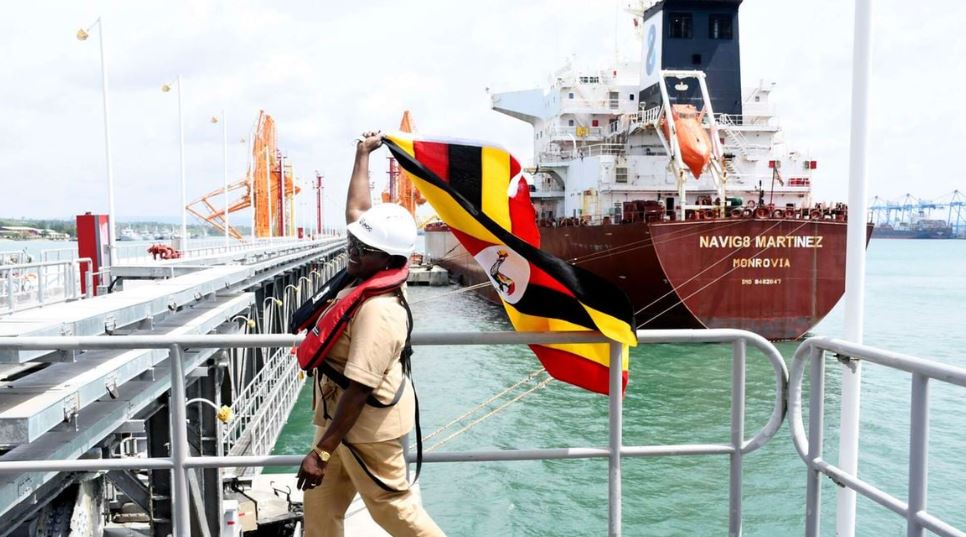
Following a deal signed between Nairobi and Kampala in May this year, Uganda is set to receive its first consignment of imported petroleum products through the port of Mombasa.
This development marks a significant shift in the region’s fuel supply dynamics, as Uganda will now use the port of Mombasa and the Kenya Pipeline Company infrastructure to facilitate the transfer of fuel. This move is expected to lower pump prices in Uganda and end the monopoly of Kenyan Oil Marketing Companies, which had been the primary suppliers of fuel to the landlocked country.
The maiden vessel, Navig8 Matines, carrying over 60,000 metric tons of petrol destined for Uganda, docked at the port of Mombasa on Wednesday afternoon.
The tanker is discharging its consignment at the Kipevu Oil Terminal 2 facility, a state-of-the-art terminal built at a cost of Kes.40 billion. This facility boasts a total capacity of 24 million metric tonnes, significantly enhancing the region’s fuel storage and handling capabilities.
The offshore island terminal features four berths, each 770 meters long, allowing for the simultaneous discharge of several vessels. This capability improves ship turnaround time and eliminates demurrage charges, contributing to more efficient fuel distribution.
Kampala’s approval of the Petroleum Supply Amendment Act of 2003 has been pivotal in this development, granting the Uganda National Oil Company the sole mandate to directly procure petroleum products.
This legislative change allows Uganda to directly import various fuel products, including diesel, petrol, aviation fuel, crude oil, and liquefied petroleum gas via the port of Mombasa.
Once the fuel arrives at the port, it will be transported using the Kenya Pipeline infrastructure to Kisumu or Eldoret for onward transportation to Uganda. This streamlined process promises to enhance fuel supply efficiency and reliability for Uganda, potentially leading to more stable fuel prices and a more secure energy supply chain.
Meanwhile, the use of the port of Mombasa and the Kenya Pipeline Company infrastructure by Uganda for importing petroleum products generates additional revenue for Kenya through port fees, handling charges, and pipeline usage fees.
Successfully facilitating Uganda’s fuel imports also reinforces Kenya’s position as a regional trade and logistics hub, attracting more business from neighboring countries and potentially leading to more international investments.
By ensuring a steady and potentially increased flow of petroleum products through its infrastructure, Kenya could also benefit from more stable fuel prices domestically, which can have positive ripple effects on the overall economy.
The deal also fosters strategic partnerships and regional integration, aligning with initiatives such as the East African Community (EAC) goals of creating a seamless regional market.








